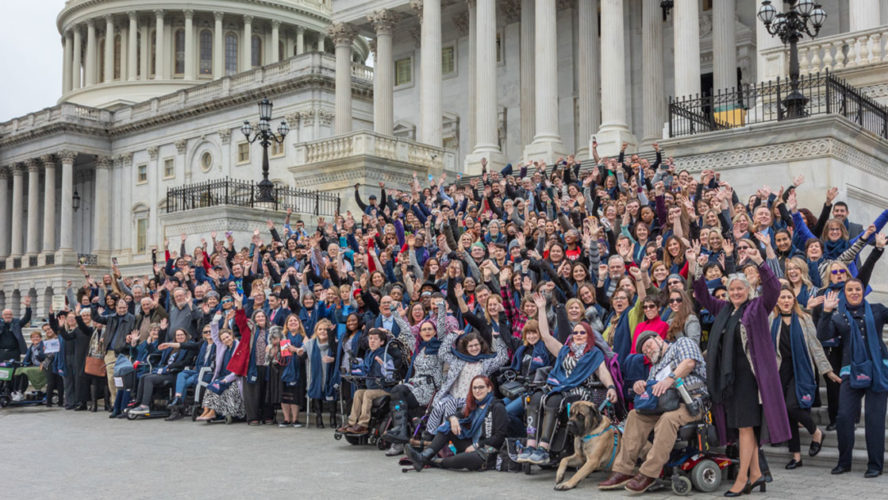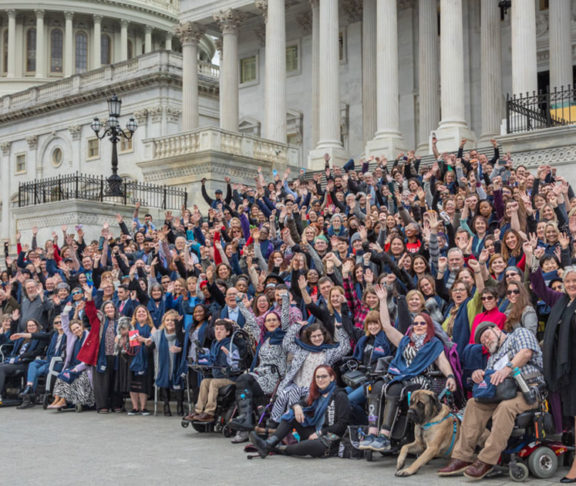A rare disease diagnosis may feel isolating, but there are global networks created to combine community and advocacy.
Patients like me know all too well the feelings of isolation that living with a rare disease can bring. The reality can seem bleak. Only 5% of us have an FDA-approved treatment for our condition. Even if an effective therapy exists, often it is unaffordable, or we spend hours battling with our insurance provider to cover it. That’s if we have received a diagnosis at all. A recent study from the EveryLife Foundation for Rare Diseases determined the average amount of time that patients suffer without diagnosis is 6.3 years. I went 10.
While evidence now suggests there are more than 10,000 known rare diseases affecting more than 30 million Americans, many of these diseases impact as few as one patient. Having a sense of belonging is a basic human need, but it’s hard to join a club when you’re the only member.
Uniting communities
One way to overcome the loneliness of rare disease is by engaging with patient organizations. Disease-specific nonprofit organizations offer advocacy, resources, support, and ways to help raise funds for the development of treatments and cures. Umbrella organizations like the National Organization of Rare Diseases, Global Genes, EURORDIS Rare Diseases Europe, and the EveryLife Foundation provide opportunities to interact with the broader rare disease community.
In February, for example, EURORDIS, with financial and consultative support from the EveryLife Foundation, brought together 44 patient advocates from 21 countries for Brussels Rare Disease Week to share the challenges of their rare disease journey with European Union decision-makers. What better way to combat the rare disease public health crisis globally than by reaching across borders?
Stateside, the EveryLife Foundation welcomed hundreds of rare disease patients and caregivers to Washington, D.C. for the 12th annual Rare Disease Week on Capitol Hill. The event attracted participants from all 50 states and Puerto Rico, ranging in age from 1 to 82 years and representing more than 100 patient organizations and 250 rare diseases. From Brooklyn, New York to Bismarck, North Dakota to Brush Prairie, Washington, advocates converged to share their personal stories with members of Congress. They were even joined by citizens of the Cherokee Nation (the largest federally recognized tribe in America) from their tribal reservation in Oklahoma.
Traveling for rare disease patients is often a challenge (and isn’t cheap), but determined individuals from across the country made the journey so they could join their voices — on whatever issues mattered to them. These advocates know legislation backed by evidence and supported with personal stories has the power to drastically improve quality of life and perhaps even to save lives. But worthwhile policies don’t pass unless brave patients demand it.
Community keeps hope alive
Advocating in numbers is not only effective, but also uplifting. Having a sense of purpose and working toward a shared goal is good for our mental health. So too is the camaraderie developed at events like Rare Disease Week. Every rare disease patient is unique, but they share the commonality of being unique.
At the EveryLife Foundation, we are fighting for, well, every life. We believe that no disease is too small to deserve treatment and a cure. But we need your help.
We need more rare patients and their friends, family members, and caregivers — in the United States and abroad — to engage in advocacy. Our community is inherently diverse. Rare disease does not discriminate. It impacts people no matter their age, gender, race, ethnicity, creed, political affiliation, or country of origin. Rare disease affects families regardless of their household income. We need every voice at the table, pushing for policy change.
Rare disease can be isolating, but it need not be defeating. By engaging in advocacy, you can do good while feeling good.
Learn more about the policies impacting the rare disease community and how to take action at everylifefoundation.org.

